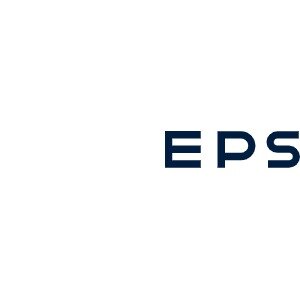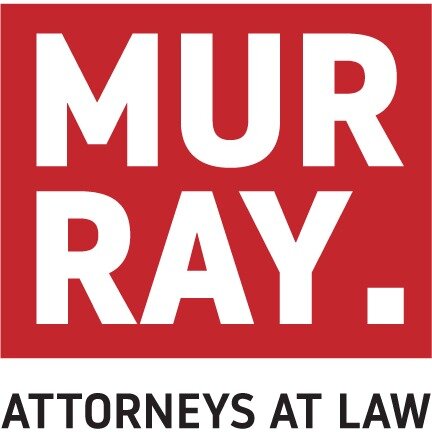Best Debt Capital Markets Lawyers in Curaçao
Share your needs with us, get contacted by law firms.
Free. Takes 2 min.
Or refine your search by selecting a city:
List of the best lawyers in Curaçao
About Debt Capital Markets Law in Curaçao
Debt Capital Markets in Curaçao refer to the sector of the financial market where companies and public entities raise funds by issuing debt instruments such as bonds, notes, or other securities. Curaçao is recognized as a prominent financial services center in the Caribbean, with a regulatory framework that offers flexibility and transparency for international transactions. The jurisdiction’s legal system, based on Dutch civil law, ensures robust protections for investors while promoting an attractive environment for issuers looking to access capital through debt instruments.
Why You May Need a Lawyer
Engaging with Debt Capital Markets can be complex, particularly given the cross-border nature of many transactions involving Curaçao entities. You may need a lawyer when issuing or investing in bonds, structuring and registering debt securities, or when navigating regulatory compliance for public or private offerings. Legal assistance is also critical in resolving defaults or responding to changes in regulation. Whether you are an issuer, investor, trustee, or interested third party, obtaining legal advice helps mitigate risks and ensures your transactions are executed in accordance with local laws.
Local Laws Overview
Curaçao’s Debt Capital Markets operate under a sophisticated legal framework grounded in civil law traditions. Notable features include:
- The National Ordinance on the Supervision of the Securities Industry governs trading, registration, and regulation of debt securities.
- The Curaçao Financial Services Regulatory Authority (Centrale Bank van Curaçao en Sint Maarten) oversees the market to ensure investor protection and market integrity.
- Requirements for prospectus approval and disclosure are in place to ensure transparency for investors.
- Special Purpose Vehicles (SPVs) can be easily established for issuing debt securities under Curaçao law, which is common in structured finance transactions.
- Tax legislation offers certain advantages for international debt transactions, such as exemptions or reduced withholding tax rates, subject to compliance with reporting obligations.
- Dispute resolution can often be handled efficiently, with the Curaçao courts or through arbitration.
Frequently Asked Questions
What is a debt security?
A debt security is a financial instrument that entitles the holder to receive regular interest payments and the return of principal at maturity. Examples include bonds, notes, and debentures.
Can foreign entities issue debt securities in Curaçao?
Yes, foreign entities regularly use Curaçao as a base for issuing debt securities due to the favorable legal and regulatory environment.
What is required to issue a bond in Curaçao?
Issuers must comply with local regulations, which typically include preparing and registering a prospectus, appointing a trustee, and meeting ongoing disclosure obligations.
Who regulates Debt Capital Markets in Curaçao?
The Centrale Bank van Curaçao en Sint Maarten is the primary regulator overseeing debt securities markets.
Are there tax benefits for debt issuance in Curaçao?
Yes, Curaçao offers a range of tax incentives, which may include exemptions or reduced rates for certain types of debt instruments and issuers, subject to regulatory approval.
How does investor protection work?
Investor protection is ensured through stringent disclosure requirements, regulatory oversight, and court-enforced contractual rights.
Can debt securities be offered to the public?
Public offerings are permitted but subject to strict regulatory controls including prospectus requirements and approval from the financial regulator.
What legal structures are commonly used for issuing debt?
Special Purpose Vehicles (SPVs) are commonly used for creating a bankruptcy-remote structure when issuing debt securities in Curaçao.
How are cross-border Debt Capital Market transactions managed?
Lawyers assist with compliance across multiple jurisdictions, coordinate with local authorities, and help structure transactions to meet the needs of international investors and issuers.
What happens in the event of a default?
In the event of default, investors typically have contractual remedies enforceable in the Curaçao courts, and legal counsel can assist in recovering the amounts owed or negotiating restructuring terms.
Additional Resources
For those seeking further information or assistance in the field of Debt Capital Markets in Curaçao, the following resources may be helpful:
- Centrale Bank van Curaçao en Sint Maarten: The main financial regulator providing guidance, rules, and oversight on securities and debt markets.
- Curaçao Chamber of Commerce and Industry: Information on business registration, corporate structures, and market participation.
- Curaçao Bar Association: Directory of qualified lawyers specializing in financial and capital markets law.
- International Financial Services Association: Insights on best practices and developments in Curaçao’s international finance sector.
Next Steps
If you are considering engaging in a Debt Capital Markets transaction in Curaçao, start by determining your objectives and gathering all relevant documents. Consult with a specialized lawyer familiar with the local and international aspects of capital markets. Most lawyers offer an initial consultation to explain your options and the process. Ensure your chosen lawyer is experienced in structuring, regulatory compliance, and dispute resolution in the Curaçao market. Keep up to date with changing regulations by regularly checking updates from official bodies. Taking these steps will help ensure that your transaction runs smoothly and complies with all local legal requirements.
Lawzana helps you find the best lawyers and law firms in Curaçao through a curated and pre-screened list of qualified legal professionals. Our platform offers rankings and detailed profiles of attorneys and law firms, allowing you to compare based on practice areas, including Debt Capital Markets, experience, and client feedback.
Each profile includes a description of the firm's areas of practice, client reviews, team members and partners, year of establishment, spoken languages, office locations, contact information, social media presence, and any published articles or resources. Most firms on our platform speak English and are experienced in both local and international legal matters.
Get a quote from top-rated law firms in Curaçao — quickly, securely, and without unnecessary hassle.
Disclaimer:
The information provided on this page is for general informational purposes only and does not constitute legal advice. While we strive to ensure the accuracy and relevance of the content, legal information may change over time, and interpretations of the law can vary. You should always consult with a qualified legal professional for advice specific to your situation.
We disclaim all liability for actions taken or not taken based on the content of this page. If you believe any information is incorrect or outdated, please contact us, and we will review and update it where appropriate.
Browse debt capital markets law firms by city in Curaçao
Refine your search by selecting a city.













